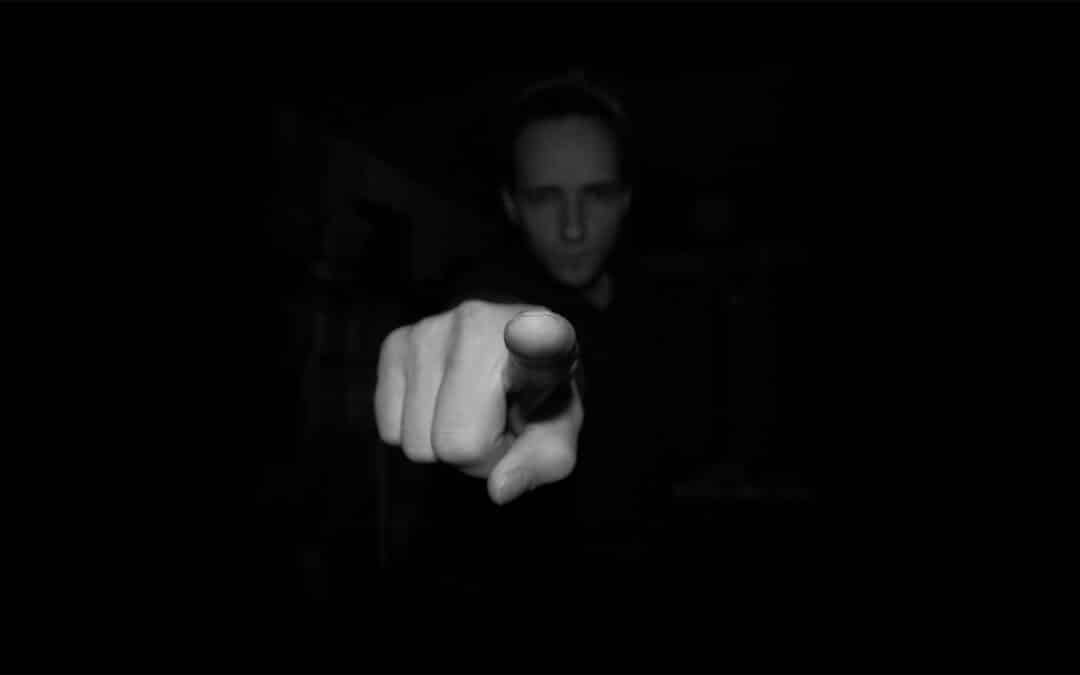#Tyrannyoftheshould, #Therapy, #should, #ought, #must
The tyranny of the ‘should’
The quite arresting image to accompany this blog post stirs strong feelings in the viewer. The shadowy figure in the background points their finger at the camera in an almost accusatory tone. We can almost imagine the words coming from the person directed toward us.
We all have a ‘pointing finger’ inside us. In psychological terms, we call it the super-ego – the part of us which takes on the values, expectations and rules of society, culture and family and wields them like a conductor wields a baton. These are designed to keep us in-check so that we comply with these rules and thereby receive acceptance, love or care. The consequences are that we start to create an ‘ideal self’, but, in order to reach this nirvana, (and be truly and completely good), we have to give up or damp down important part(s) of ourselves which make us, us in the process.
The German Psychoanalyst, Karen Horney, famously coined this tendency as ‘The Tyranny of the shoulds’. These are all of the finger-wagging statements like “You should be able to …”, “You should not be …”, “You must be perfect”, “You ought to know better” etc. These cause us endless suffering. This is not to say that we should exorcise all of our shoulds, oughts and musts; they are also the sound of our conscience. We wouldn’t survive as a species if we didn’t have ways to enforce some rules for living which make peaceful co-existence with others with very different values/beliefs/should even possible. However, when these rules become too rigid, our responses range from anxiety to depression, a feeling of dread, a loss of our sense of selves and an increasing sense of the meaningless of life.
Psychotherapy provides a space in which we can learn to understand the difference between being too rigid in our expectations of ourselves and others, or indeed, too loose. We can excavate the roots of these shoulds/oughts/musts and explore whether they are working for us or not (they may have been needed once, but are they still relevant to our now). Of course we do need some guardrails of ethical living (in the form of laws and statutes) otherwise society would break down altogether. But, some of the rules by which we expect ourselves to live are inherited from other peoples legacy, rather than express what we need to live a good life (for example the expectation to “A always work hard”.)
Learning to catch the voice of our inner-critic and evaluate the information it is offering in terms of our current situation and learn to tolerate not being perfect is a key goal of therapy. We can start to tell the difference between what I need to do to live well, and what I feel I should do to live well with others. We can learn to be responsible for our shoulds without projecting them onto others, and, responsive to old feelings of guilt, shame or rejection when we feel we have, or are likely to infringe upon the shoulds.
By freeing ourselves from the tyranny of the ideal, we allow ourselves to be imperfect humans and in that way live a good life. After all, wasn’t it Voltaire who once said ‘The perfect is the enemy of the good’.

